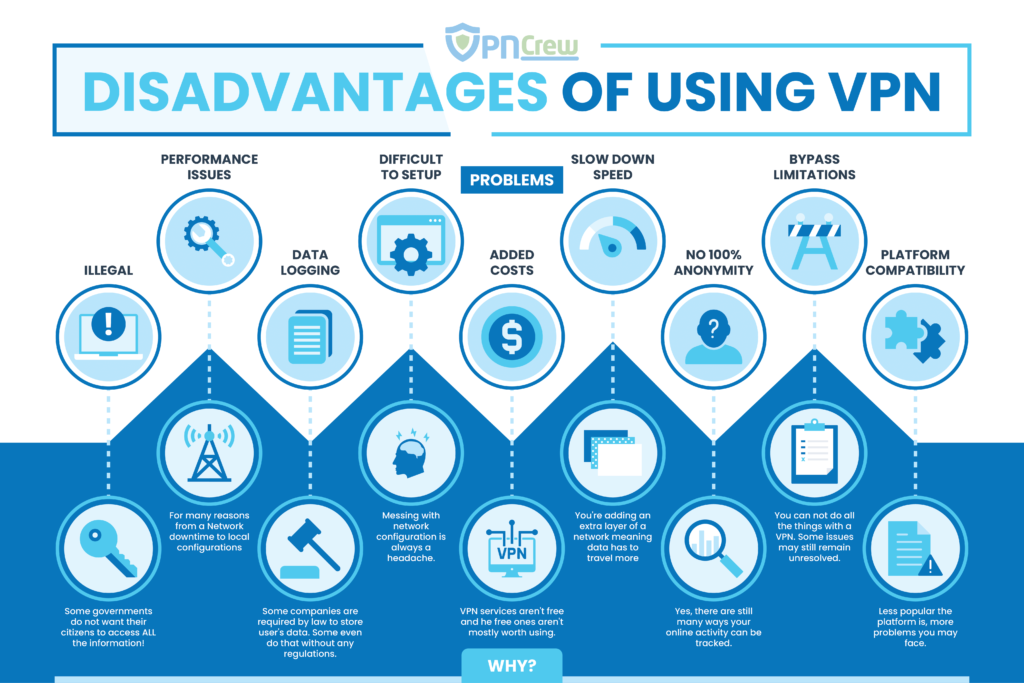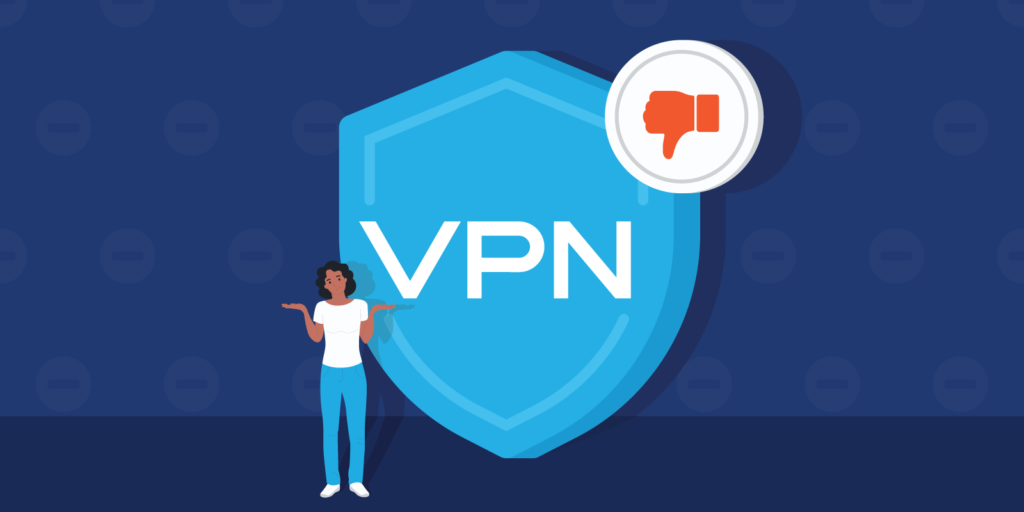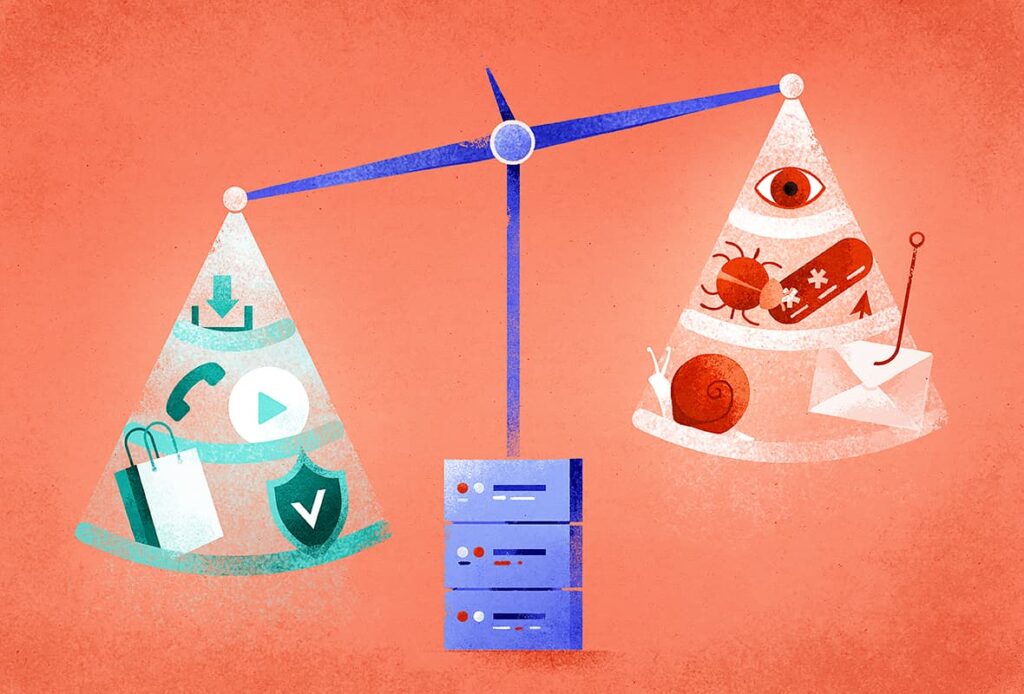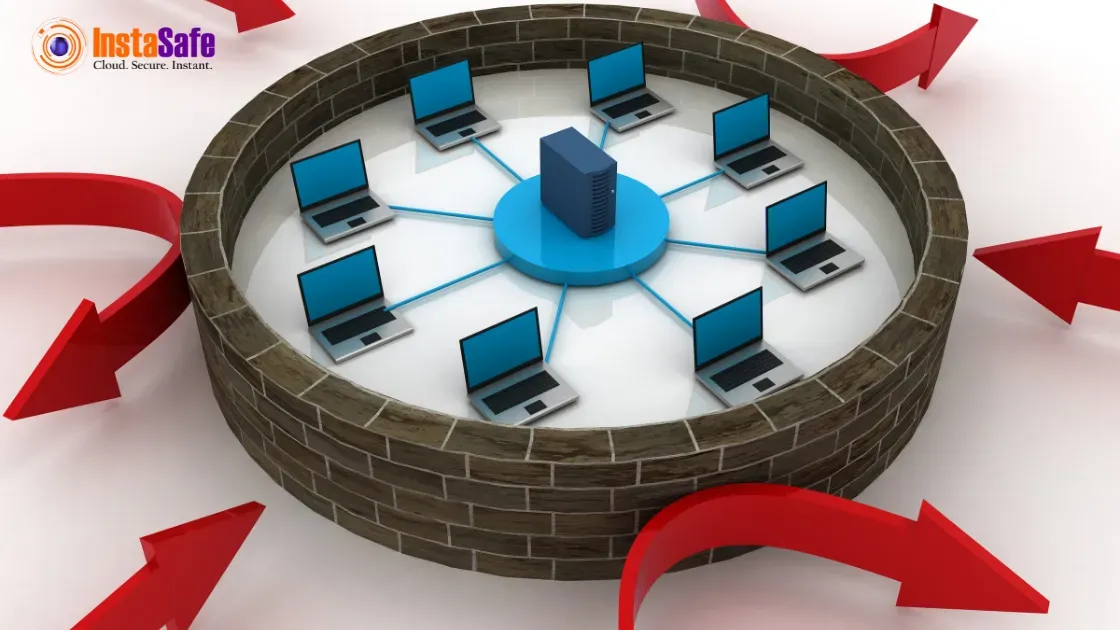The Unseen Boundaries of VPNs: A Comprehensive Guide to Their Limitations
In this article, we explore the limitations of VPNs to provide you with a deeper understanding of this widely used technology. As VPNs gain popularity and become a necessity for individuals and businesses alike, it is crucial to be aware of their drawbacks and potential shortcomings. Whether you are a beginner or an advanced user, understanding these limitations can help you make informed decisions when it comes to protecting your online privacy and security. So, let’s delve into the world of VPNs and explore their limitations together.
1. Limited Privacy
1.1. Potential for Data Logging
Using a VPN does provide a certain level of privacy and security, but it’s essential to be aware of potential data logging by VPN providers. While many reputable VPN services claim to have a strict no-logs policy, it’s difficult to verify their claims. There have been cases where VPN providers have been caught logging user data, which defeats the purpose of using a VPN for privacy. It’s crucial to research and choose a VPN service that has a proven track record of not logging user data.
1.2. Trust in VPN Providers
When using a VPN, you are essentially relying on the VPN provider to handle your internet traffic securely. This reliance raises questions regarding trust. Can you truly trust the VPN provider to protect your privacy and not misuse your data? While reputable VPN providers strive to maintain user trust, it’s essential to choose a provider with a good reputation and positive user reviews to ensure they have your best interests at heart.
1.3. Vulnerabilities in Encryption
VPNs use encryption protocols to secure your internet traffic and protect your data. However, there have been cases where vulnerabilities in encryption protocols have been discovered. It means that even though you’re using a VPN, there’s a potential risk of your data being intercepted or compromised due to these vulnerabilities. It’s crucial to stay informed about the latest encryption protocols and choose a VPN service that utilizes the most secure and up-to-date encryption methods.
2. Speed and Performance Issues
2.1. Internet Connection Speed
One of the significant concerns when using a VPN is the impact it can have on your internet connection speed. VPNs route your internet traffic through their servers, which can introduce additional latency and slow down your connection. While this is unavoidable to some extent due to the nature of how VPNs work, it’s essential to choose a VPN service that has optimized servers and a robust infrastructure to minimize the impact on your internet speed.
2.2. Server Overload
Another potential speed and performance issue with VPNs is server overload. Popular VPNs that offer a large number of server locations can sometimes experience overcrowding on certain servers. This overcrowding can result in slower connection speeds and reduced performance. It’s crucial to choose a VPN service that has a sufficient number of servers and regularly monitors server loads to ensure optimal performance.
2.3. Distance to VPN Server
The distance between your location and the VPN server you’re connected to can also affect your internet speed and performance. The further you are from the VPN server, the higher the latency will be. This can result in slower connection speeds and increased lag. It’s advisable to choose a VPN server that is geographically close to your location to minimize latency and optimize performance.
3. Geographical Restrictions
3.1. Limited Access to Local Content
While VPNs are often used to bypass geolocation restrictions and access content from different parts of the world, they can also introduce limitations in accessing local content. Some websites and streaming platforms may block access to their content when they detect that you are using a VPN. This can be frustrating, especially if you’re trying to access local news, services, or websites that are restricted to specific regions. It’s important to be aware of these limitations and choose a VPN service that offers dedicated servers for accessing local content.
3.2. Streaming Service Blocks
Many people use VPNs to access streaming services from different regions. However, streaming platforms such as Netflix and Hulu have become increasingly adept at detecting and blocking VPN traffic. This means that even if you’re using a VPN, you may not be able to bypass these streaming service blocks and access the content you want. It’s important to choose a VPN service that actively works to bypass these blocks and regularly updates their server IPs to stay ahead of streaming service restrictions.
3.3. Inconsistent Bypassing of Geo-Blocking
While VPNs can help bypass geo-blocking restrictions in many cases, it’s important to note that it’s not always 100% effective. Some websites and services have implemented advanced techniques to detect and block VPN traffic. This can result in inconsistent bypassing of geo-blocking, where you may be able to access certain content but not others. It’s crucial to choose a VPN service that has a strong track record of successfully bypassing geo-blocking and regularly updates its infrastructure to ensure reliable access to restricted content.
4. Compatibility Challenges
4.1. Device and Operating System Compatibility
Not all VPN services are compatible with every device and operating system. While most reputable VPN providers offer apps and software for popular platforms like Windows, macOS, iOS, and Android, there may be compatibility challenges with less common operating systems or older devices. It’s important to check the compatibility of a VPN service with your specific device and operating system before subscribing to avoid any compatibility issues.
4.2. VPN Protocol Support
VPNs use different protocols for encryption and secure communication. Some protocols, like OpenVPN, are widely supported and considered highly secure. However, certain devices or networks may not support all VPN protocols. For example, many corporate networks only allow the use of specific VPN protocols, limiting your options. It’s important to choose a VPN service that supports the protocol(s) compatible with your device and network to ensure a seamless connection.
4.3. Firewalls and Antivirus Software
Firewalls and antivirus software can sometimes interfere with VPN connections. They may block VPN traffic or flag it as potentially harmful, leading to connectivity issues. To ensure smooth operation, it’s advisable to whitelist your VPN software in your firewall and antivirus settings. Additionally, some VPN services offer dedicated firewall features or recommendations to help users overcome these compatibility challenges.
5. Single Point of Failure
5.1. VPN Server Downtime
Just like any online service, VPN servers can experience downtime due to maintenance, technical issues, or even cyberattacks. When a VPN server goes down, it can disrupt your internet connectivity and leave you vulnerable without the protection of the VPN. While reputable VPN providers strive to minimize downtime and have backup servers in place, it’s important to be aware that server outages can occur and choose a VPN service with a reliable infrastructure.
5.2. Dependency on VPN Provider
When using a VPN, you become dependent on the VPN provider for your internet connectivity and security. If the VPN provider experiences any issues or faces legal challenges, it can directly impact your online experience. This dependency on a single provider can be seen as a single point of failure. It’s essential to choose a VPN service that has a strong track record and takes proactive measures to ensure the continuity of their service.
5.3. Breaches and Malicious Activity
While VPNs are designed to enhance security and privacy, they are not immune to breaches or malicious activity. If a VPN service experiences a data breach, it can result in the exposure of user data and compromise your privacy. Additionally, there have been cases where malicious actors have set up fake VPN services to exploit unsuspecting users. It’s crucial to choose a reputable VPN provider that prioritizes security and regularly undergoes independent security audits to protect against these potential risks.
6. Legal and Jurisdiction Concerns
6.1. Data Retention Laws
Different countries have different data retention laws, which can impact the privacy and security measures of VPN services operating within those jurisdictions. Some countries may require VPN providers to store user data or provide access to user data to law enforcement agencies. It’s essential to choose a VPN service that operates in a jurisdiction with favorable privacy laws and clearly outlines its data retention policy.
6.2. Cooperation with Authorities
In line with data retention laws, VPN providers may be required to cooperate with authorities, including sharing user data when requested. The level of cooperation can vary depending on the jurisdiction in which the VPN provider operates. If privacy is a top concern, it’s advisable to choose a VPN service that has a strong stance on user privacy and explicitly states its resistance to unwarranted data requests.
6.3. Jurisdiction of VPN Providers
The jurisdiction in which a VPN provider operates can have a significant impact on its privacy practices, legal obligations, and the level of protection it can offer to its users. Some jurisdictions have better privacy laws and regulations than others, making them more attractive for VPN services that prioritize user privacy. When choosing a VPN provider, it’s important to consider the jurisdiction in which it operates and assess the level of privacy protection it can offer.
7. Cost and Affordability
7.1. Subscriptions and Pricing Tiers
VPN services typically offer different pricing tiers based on the duration of the subscription and the features included. While there are free VPN options available, they often come with limitations such as bandwidth restrictions, slower speeds, and intrusive ads. Paid VPN services offer more robust features and enhanced performance but come at a cost. It’s important to choose a VPN service that fits your needs and budget while considering the value it provides in terms of privacy, security, and performance.
7.2. Hidden Costs and Bandwidth Limitations
Some VPN providers may have hidden costs or limitations that are not explicitly mentioned in their pricing plans. For example, they may impose strict bandwidth limitations or charge extra for additional features such as dedicated IP addresses or access to specific server locations. It’s crucial to carefully review the terms and conditions of a VPN service to ensure there are no hidden costs or limitations that may affect your experience.
7.3. Free VPN Limitations
While free VPN services can be attractive due to their zero-cost nature, they often come with significant limitations. Free VPNs may have limited server locations, slower speeds, and may even log and sell user data to third parties for revenue. They may also lack the same level of privacy and security features as paid VPN services. It’s important to understand the compromises associated with using a free VPN and weigh them against the benefits to ensure you make an informed decision.
8. User Knowledge and Technical Expertise
8.1. Complexity of VPN Setup and Configuration
Setting up and configuring a VPN can sometimes be a complex process, especially for less tech-savvy users. VPNs may require manual configuration of network settings, installation of additional software or apps, and understanding various encryption protocols. While many VPN services offer user-friendly interfaces and automated setup processes, it’s essential to have a basic understanding of networking and the technology involved to ensure a smooth setup and configuration experience.
8.2. Troubleshooting Connectivity Issues
When using a VPN, connectivity issues can arise due to various factors such as network configurations, server locations, or compatibility problems. Troubleshooting these issues can be challenging, particularly for users who are not familiar with networking concepts or VPN-specific troubleshooting techniques. It’s important to have some technical knowledge or rely on comprehensive support resources provided by the VPN service to resolve connectivity issues effectively.
8.3. Misconfiguration Risks
Improperly configuring a VPN can result in security vulnerabilities or unintended leaks of sensitive information. Users who are not familiar with VPN settings and protocols may unknowingly misconfigure their VPN, leaving themselves exposed to potential risks. It’s crucial to follow the VPN provider’s recommended configuration guidelines and ensure that the VPN is set up correctly to maximize privacy and security.
9. Potential for IP Address Leaks
9.1. DNS Leaks
DNS leaks occur when the DNS requests made by your device bypass the VPN tunnel and are sent directly to your ISP’s DNS servers. This can reveal your browsing activity and compromise your privacy, even if you’re using a VPN. While many VPN services claim to prevent DNS leaks, not all of them are effective. It’s important to choose a VPN service that has built-in DNS leak protection to ensure that your DNS requests remain secured within the VPN tunnel.
9.2. WebRTC Leaks
WebRTC is a technology used by browsers to enable real-time communication, such as video conferencing and file sharing. However, WebRTC can also leak your IP address, even if you’re connected to a VPN. Some VPN providers offer built-in WebRTC leak protection, while others may require additional browser extensions or manual configuration to prevent these leaks. It’s crucial to address WebRTC leaks to ensure your IP address remains hidden and your privacy is maintained.
9.3. IPv6 Leaks
Most VPNs support IPv4, the current standard for internet protocol addressing. However, many devices and networks now also support IPv6, the next-generation protocol. If a VPN does not support IPv6 or has misconfigured IPv6 settings, it can lead to IP address leaks when using IPv6-enabled websites or services. It’s important to choose a VPN service that fully supports both IPv4 and IPv6 to prevent potential IPv6 leaks and maintain your online privacy.
10. Impact on Battery Life (Mobile Devices)
10.1. Increased Power Consumption
Using a VPN on a mobile device can consume more battery power due to the added encryption and data routing processes. The device’s processor and network components work harder to establish and maintain a secure VPN connection, leading to increased power consumption. While the impact on battery life may vary depending on device specifications and VPN efficiency, it’s important to consider this factor, especially when using a VPN for extended periods on a mobile device.
10.2. Unoptimized VPN Apps
Not all VPN apps are equally optimized, and some may consume more system resources and battery power than others. Poorly designed or resource-intensive VPN apps can significantly impact battery life, causing your device to drain faster. It’s advisable to choose a VPN service that offers well-optimized and efficient apps for your specific mobile operating system to minimize the impact on battery life.
10.3. Unreliable Connectivity
On mobile devices, connectivity issues can arise due to factors such as network switching, entering low-coverage areas, or poor Wi-Fi signals. VPNs can sometimes exacerbate these connectivity problems, resulting in intermittent or unreliable connection to the VPN server. This inconsistency can impact your overall online experience and reduce the effectiveness of using a VPN on a mobile device. It’s important to choose a VPN service that offers stable and reliable mobile connectivity to minimize disruptions.
In conclusion, while VPNs offer significant benefits in terms of privacy, security, and access to restricted content, it’s important to be aware of their limitations. Whether it’s potential data logging by VPN providers, compatibility challenges, or the impact on internet speed and battery life, understanding these limitations can help you make informed decisions and choose the right VPN service for your needs. By considering these factors and selecting a reputable VPN provider, you can maximize the advantages of using a VPN while minimizing any potential drawbacks.




